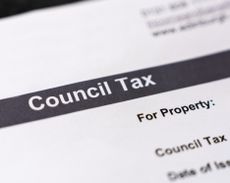Property
The latest news, updates and opinions on Property from the expert team here at MoneyWeek
Explore Property
-

8 of the best houses for sale for around £500,000
The best houses for sale for around £500,000 – from a navigable 1920s Dutch barge on a marina in Isleworth, London, to a basement apartment in Clifton, Bristol
By Natasha Langan Last updated
-

Will mortgage rates fall this year?
The mortgage price war may be over in a blow for borrowers. Whether you're buying a home, remortgaging or you’re a buy-to-let landlord, we look at the outlook for mortgage rates this year and into 2026
By Marc Shoffman Last updated
-

What’s happening with UK house prices? Latest property market moves and forecasts
House price growth appears to be on the rebound following a subdued 2025. Where are prices heading in 2026 and beyond?
By Daniel Hilton Last updated
-

Nationwide: UK house price growth bounced back in January
House price growth slowed in 2025 but the new year is showing more positive signs for the property market
By Marc Shoffman Published
-

How to check your council tax band
Tips Thousands of homeowners continue to overpay for council tax because they are in the wrong band. We look at how to check your council tax band and how to challenge it.
By Daniel Hilton Last updated
Tips -

What house features do homebuyers look for? How to boost house price by £20k
When it comes to selling property, these house features are likely to seal the deal for prospective buyers
By Sam Walker Last updated
-

8 of the best houses for sale with libraries
The best houses for sale with libraries – from a country house in Surrey with a circular library, to a house in Pembrokeshire with custom-made bookshelves
By Natasha Langan Last updated
-

Top reasons homeowners use equity release to access £4 trillion housing wealth
The equity release market grew 11% in 2025, according to the latest data, as the over 55s rushed to make use of the trillions of pounds tied up in their homes. Here’s what they did with the money.
By Laura Miller Published
-

The coastal locations where properties are losing value
Property prices across a number of coastal hotspots plunged in 2025 - which areas are most affected?
By Sam Walker Published


